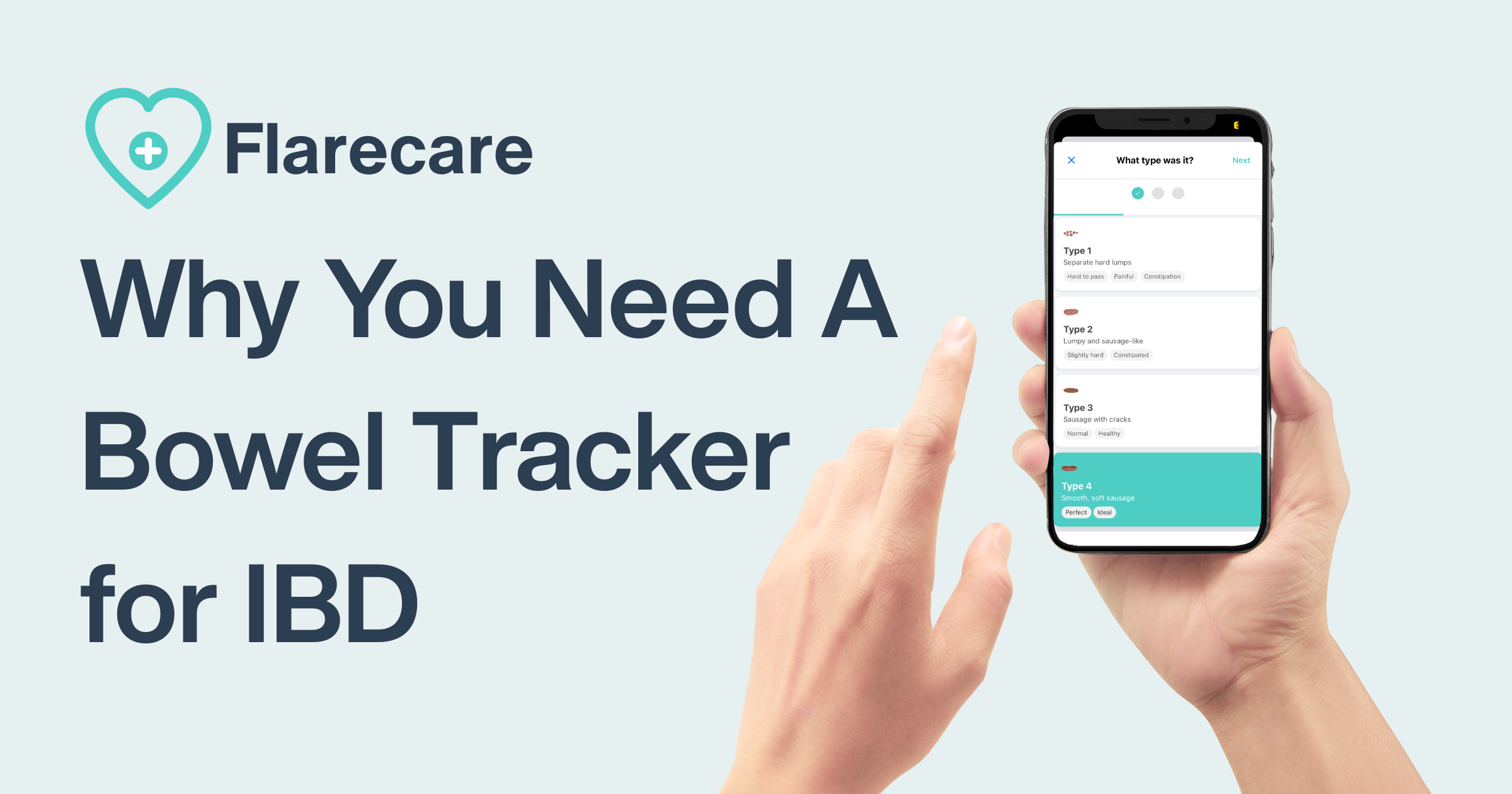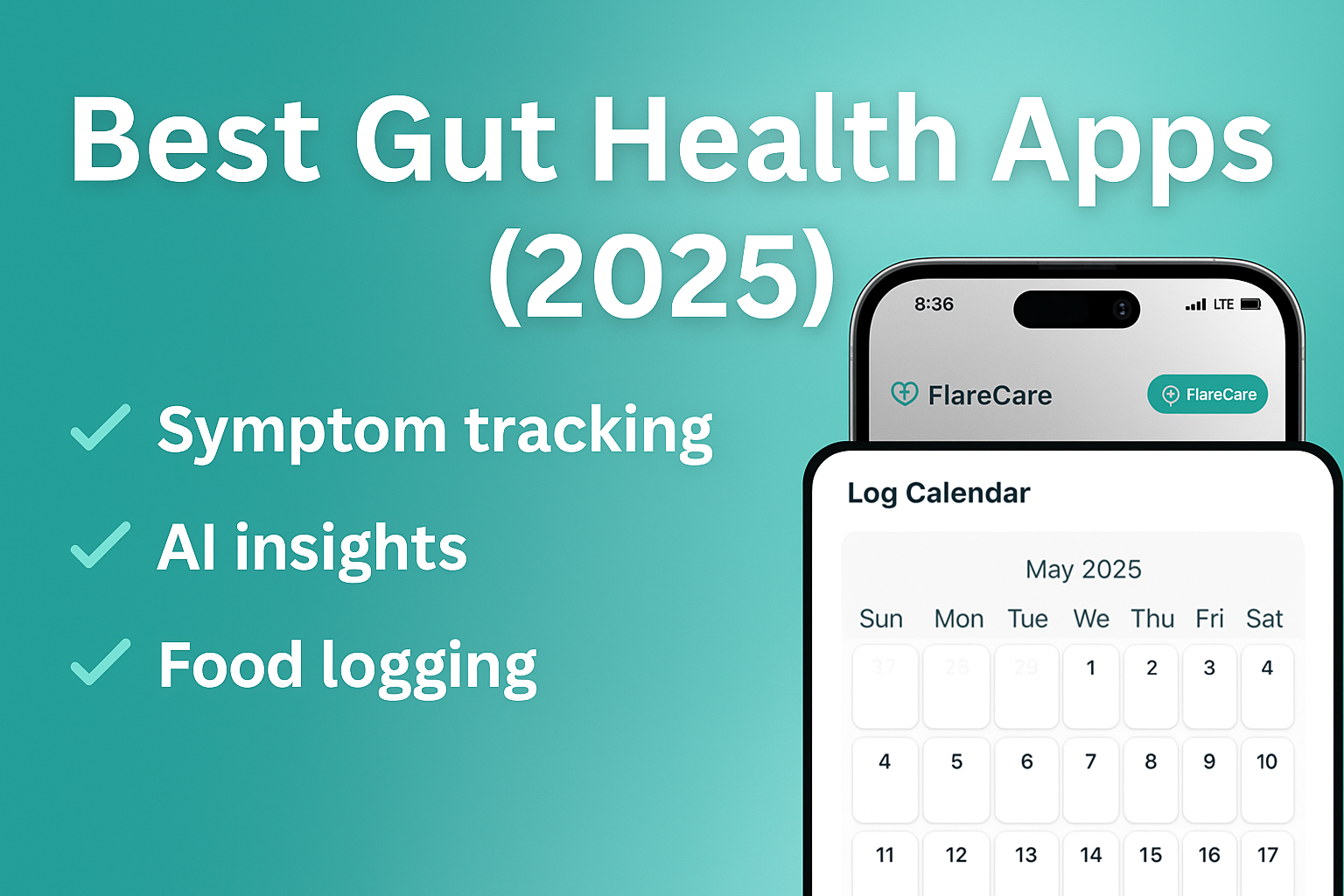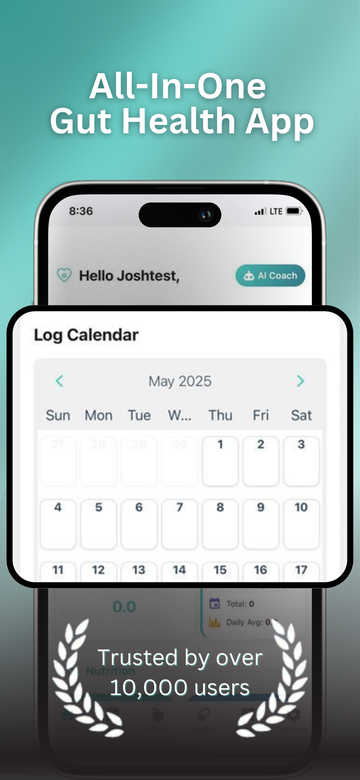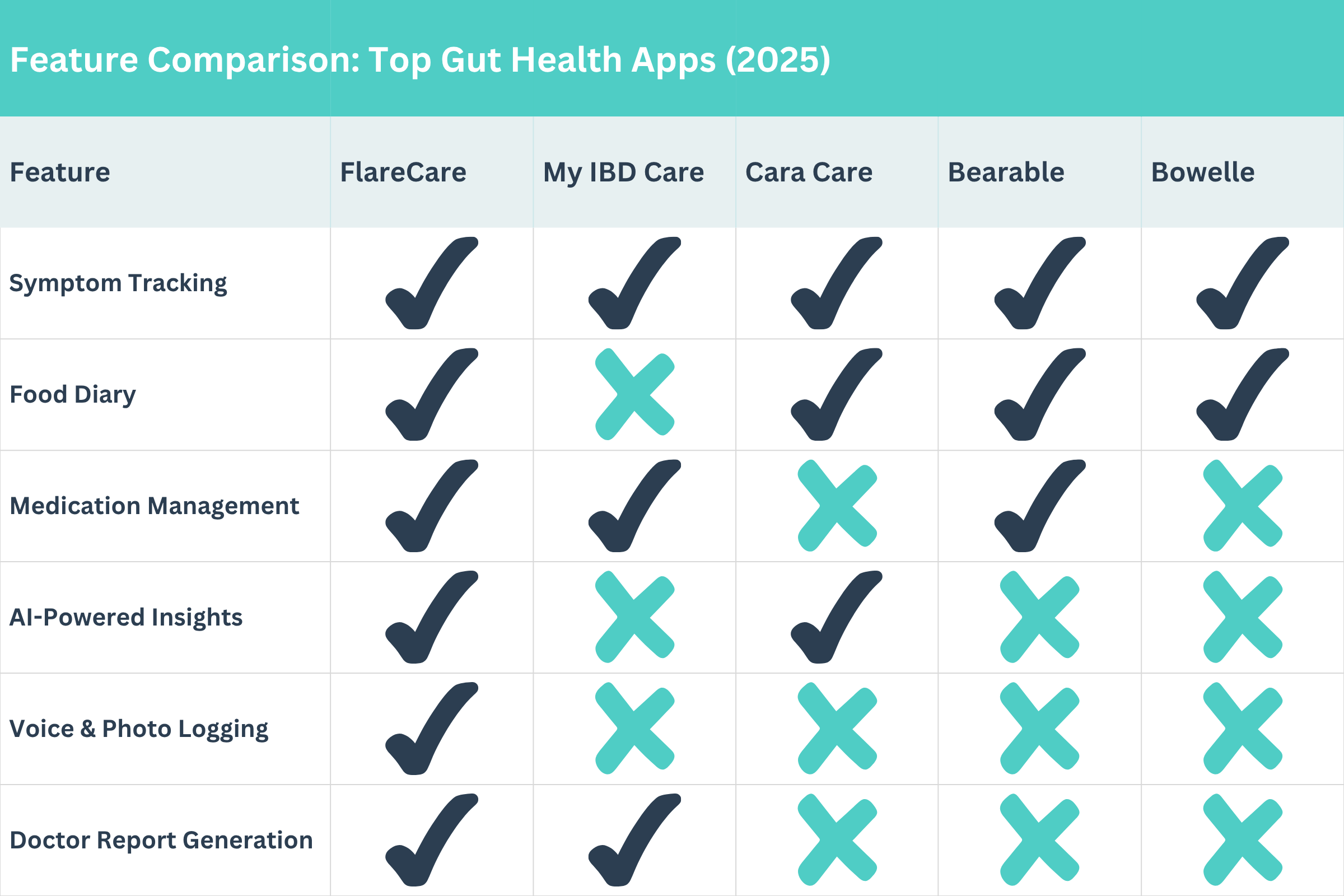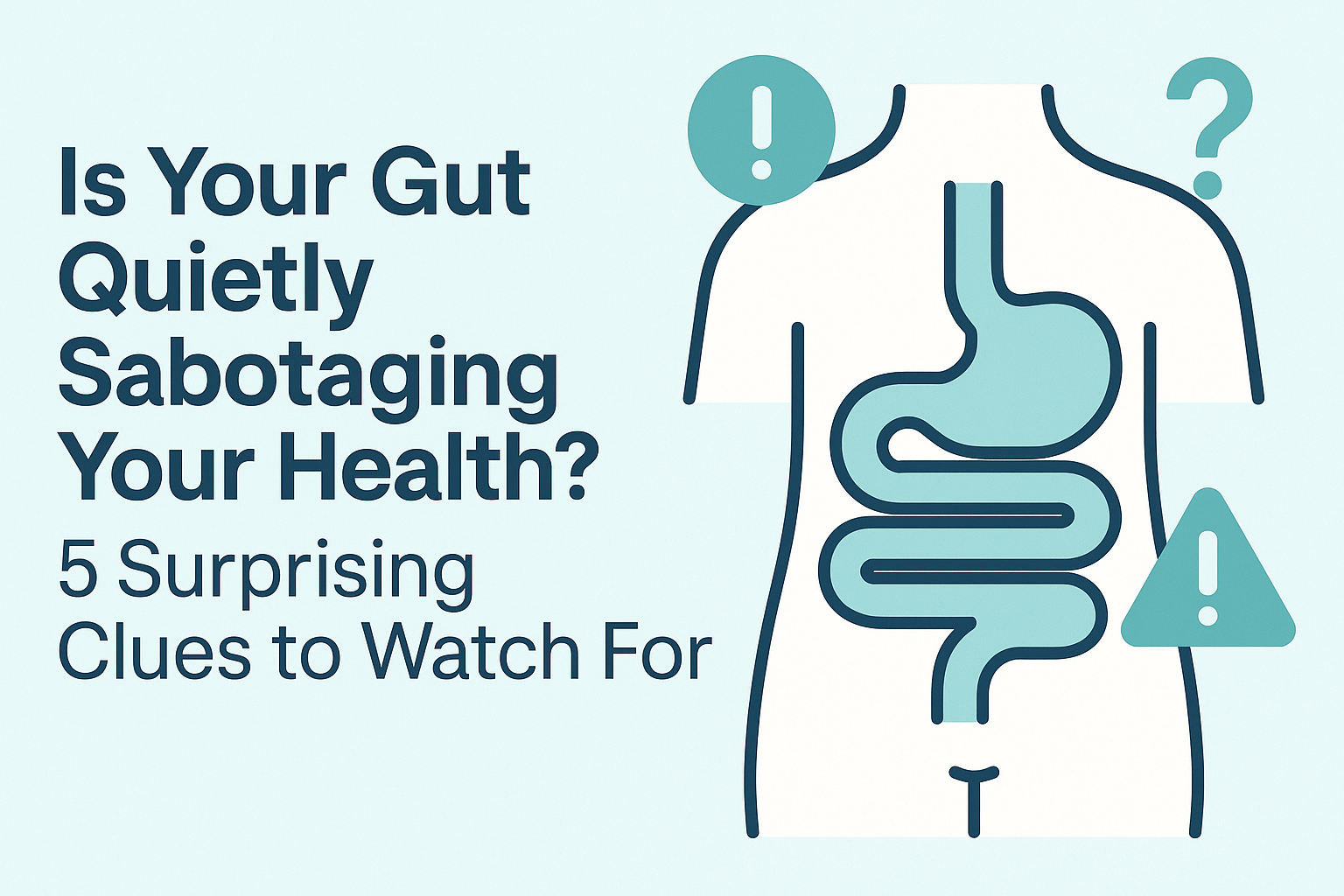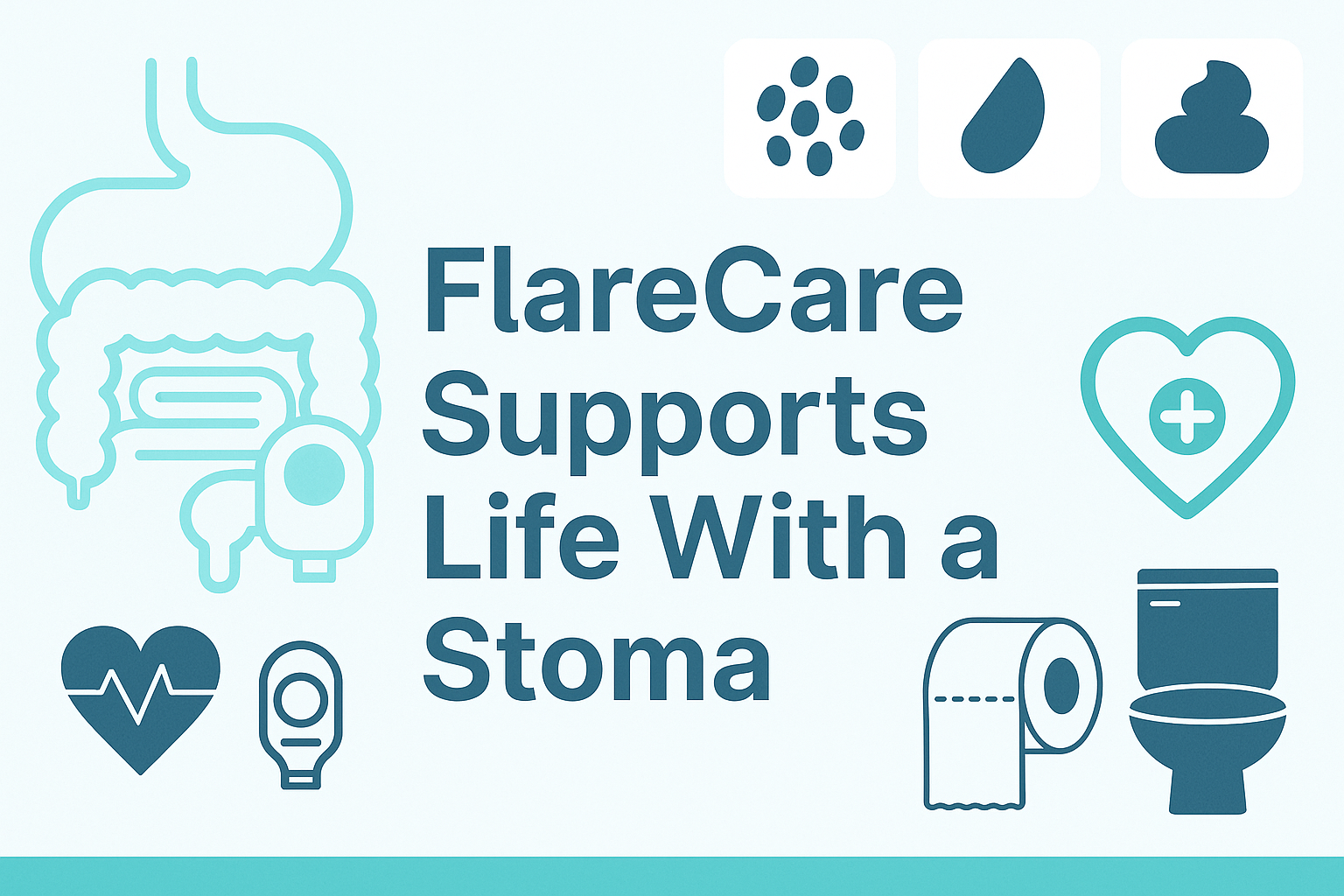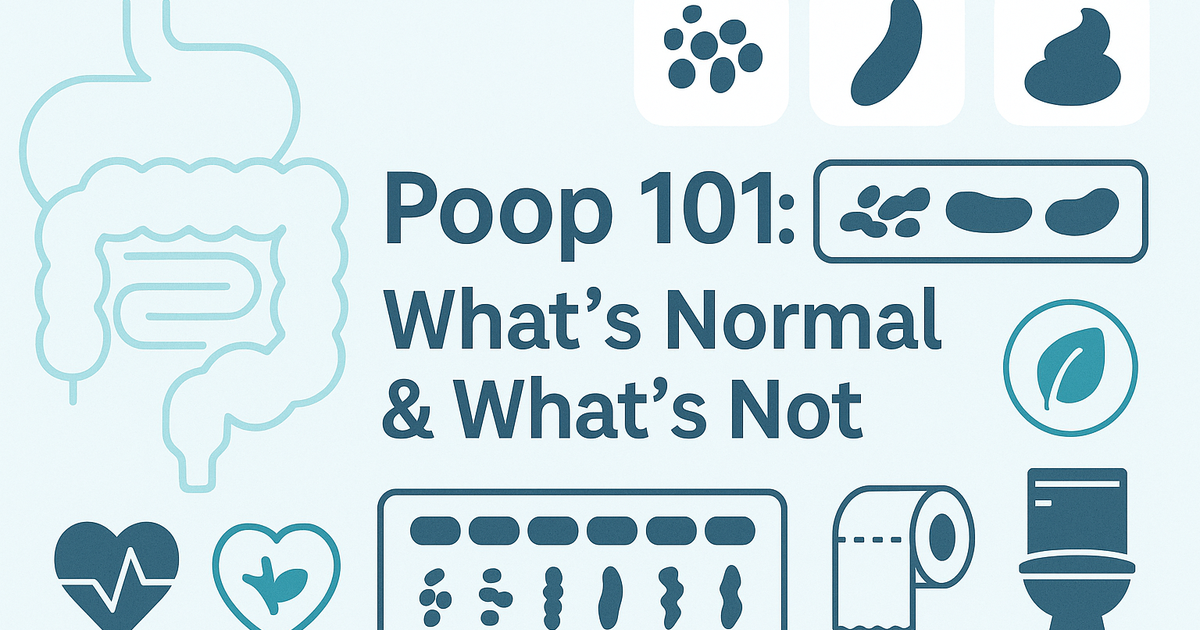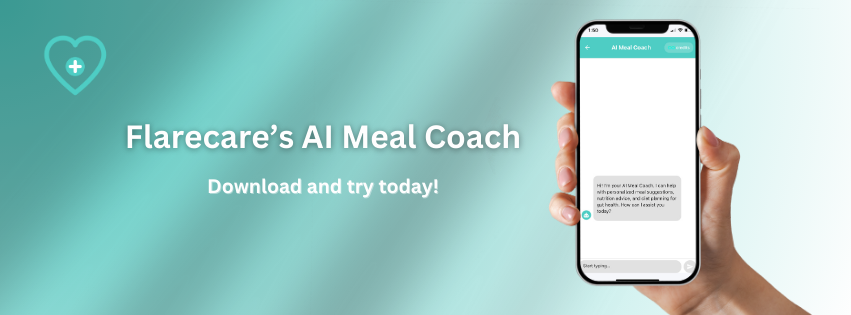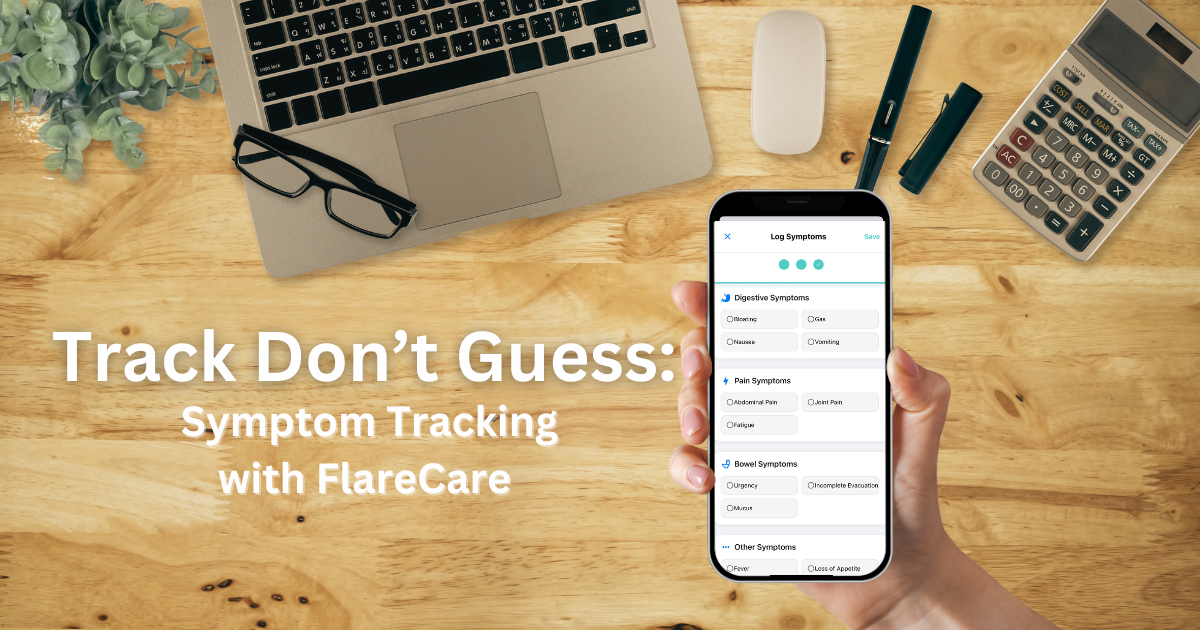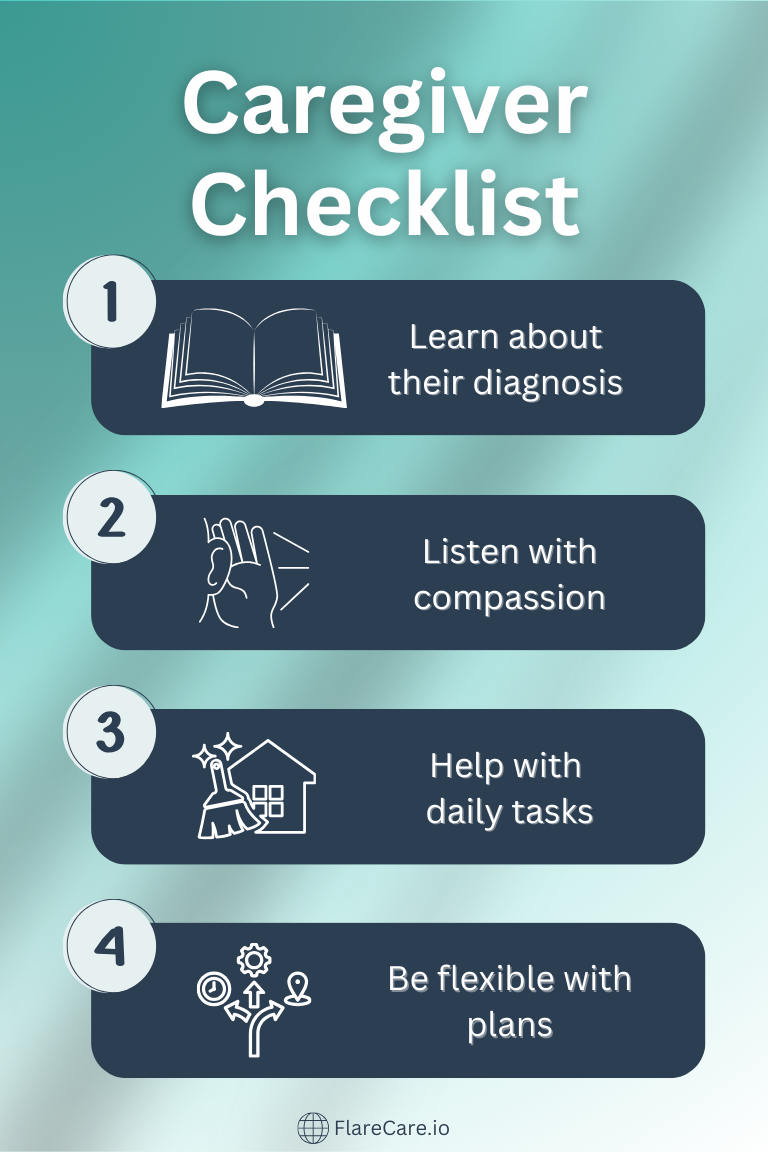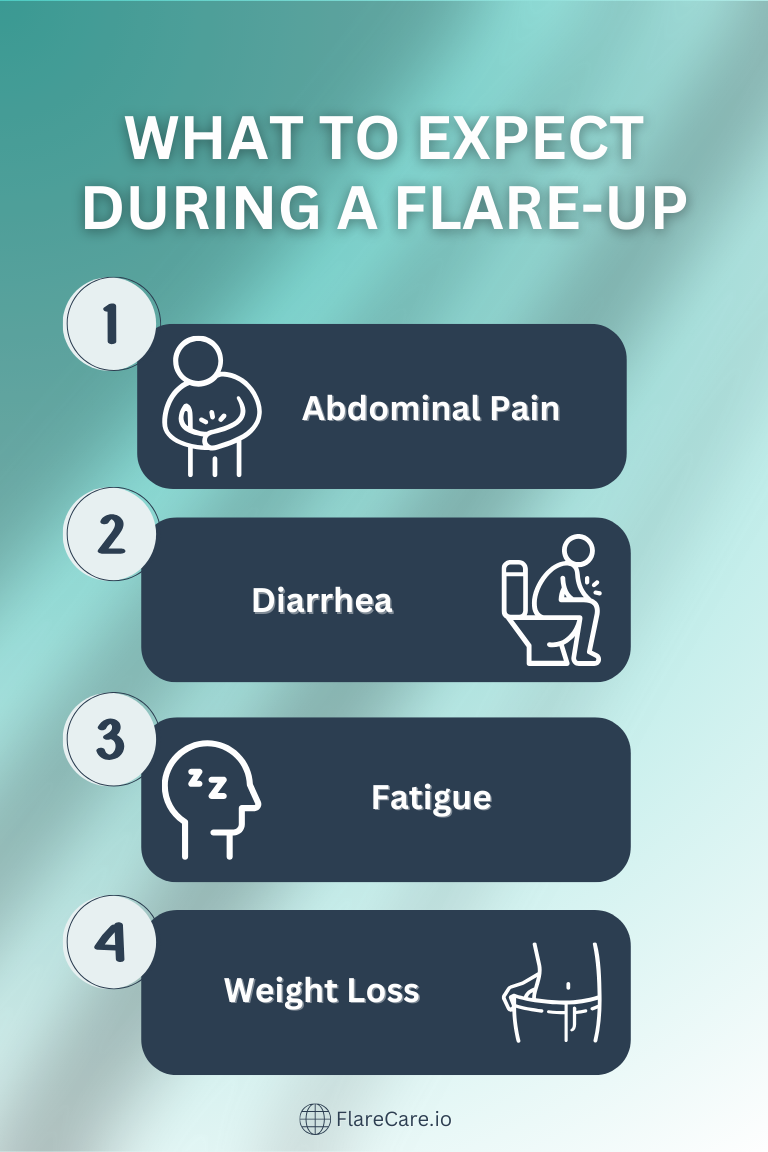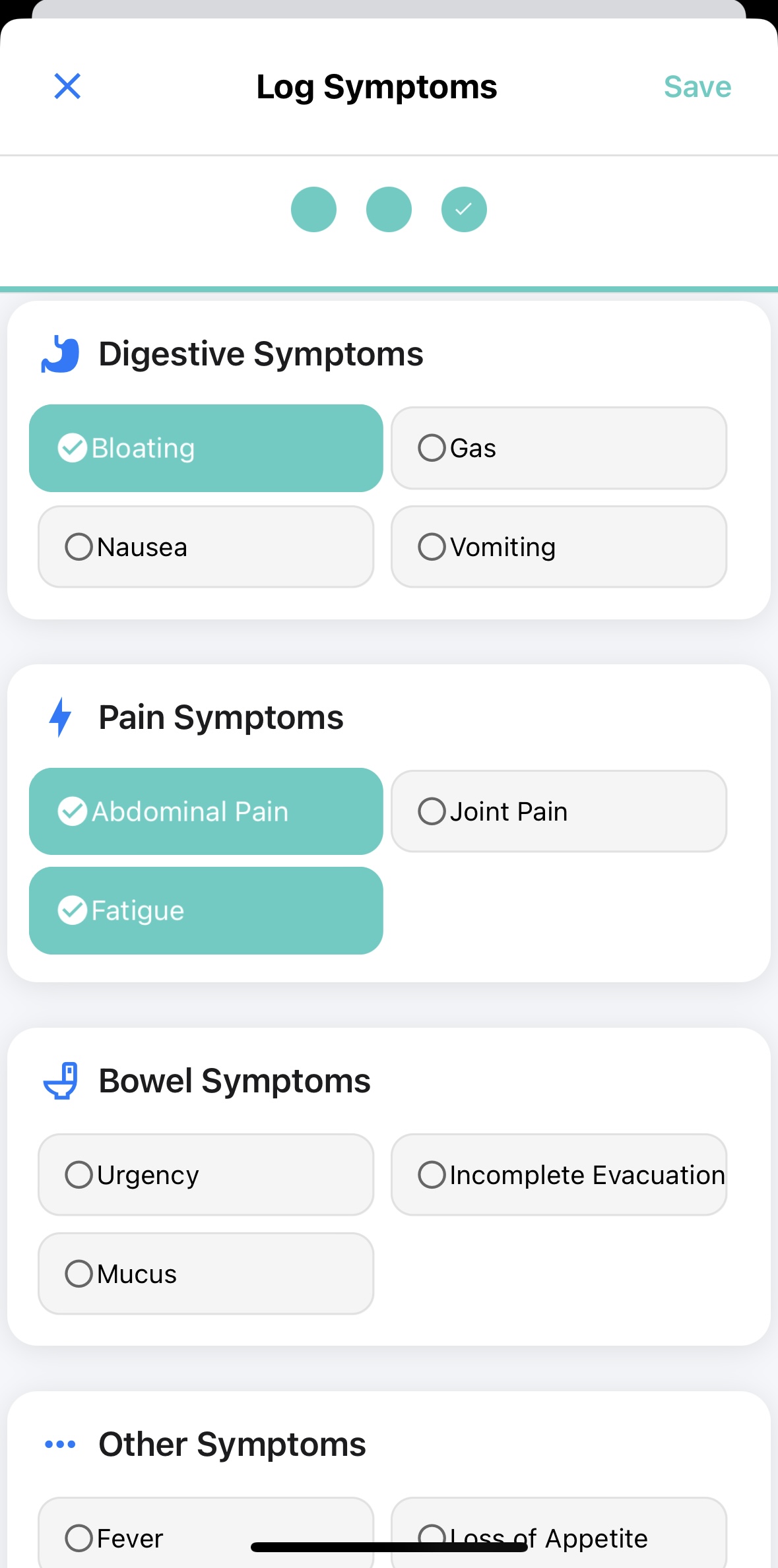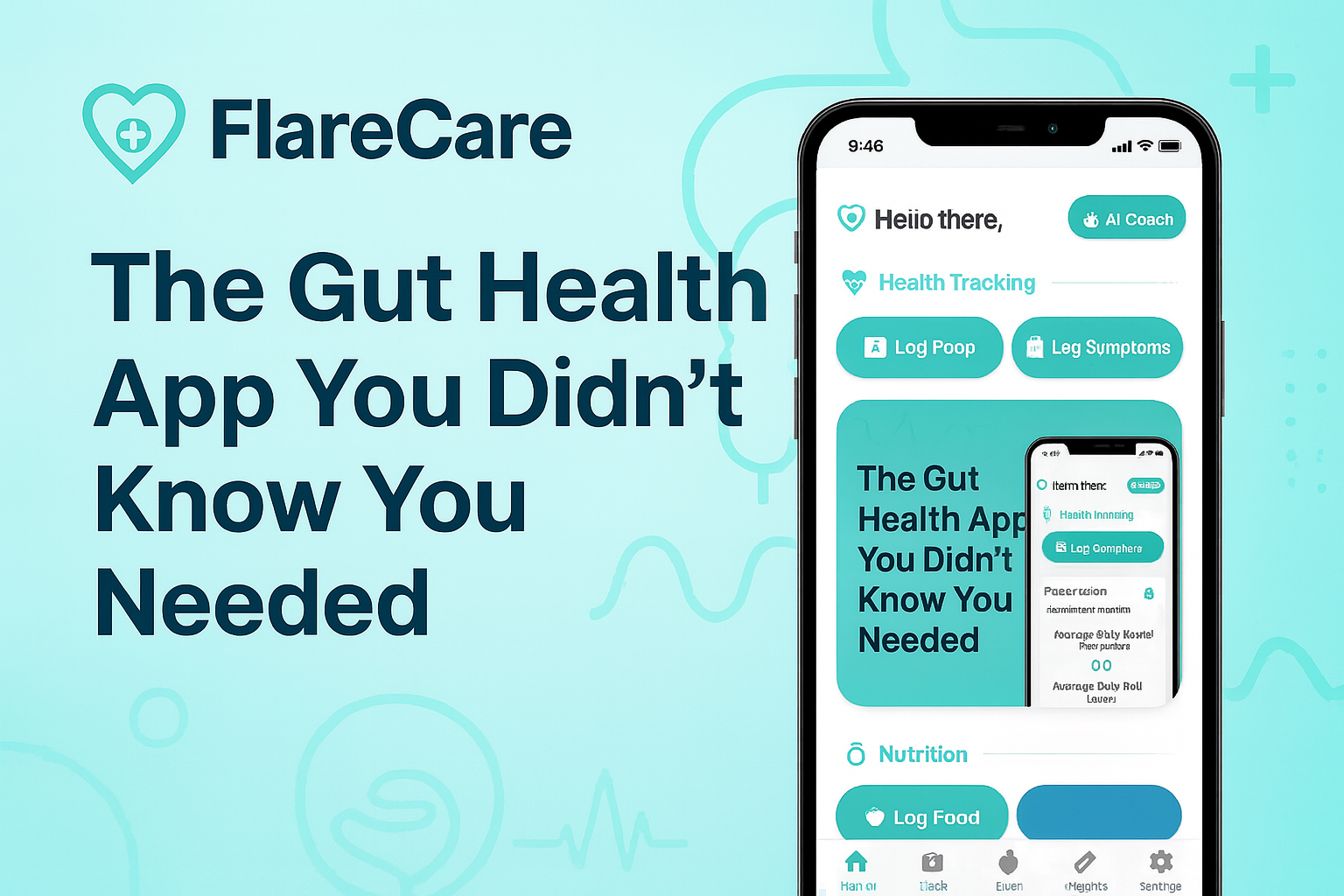
The Gut Health Tracker You Didn’t Know You Needed: How FlareCare Helps You Manage IBD, IBS, and Chronic Digestive Symptoms
Tired of guessing what’s triggering your gut issues? FlareCare is an all-in-one symptom tracker built for IBD, IBS, and anyone with digestive struggles. With AI-powered insights and easy logging tools, you can finally connect the dots and take control of your gut health.
If you’re constantly asking yourself, “Was it the food? The stress? Just my body being weird again?” — you’re not alone.
For anyone living with Inflammatory Bowel Disease (IBD), Irritable Bowel Syndrome (IBS), or daily digestive issues, finding clear answers can feel like chasing a moving target. Flares come out of nowhere. Food feels like a gamble. And keeping track of it all? Nearly impossible.
That’s exactly why we created FlareCare—a gut health tracker app designed to help you finally connect the dots.
What Is FlareCare?
FlareCare is a gut health tracking app built specifically for people with chronic digestive conditions. Whether you’re managing Crohn’s disease, ulcerative colitis, IBS, or just want to better understand your symptoms, FlareCare makes it easy to log what matters—so you can stop guessing and start seeing patterns.
No spreadsheets. No messy notes. Just one app that actually gets it.
Key Features That Make a Real Difference
Whether you’re newly diagnosed or deep into your chronic illness journey, FlareCare gives you the tools you wish you had from day one:
Bowel Movement Tracker
Log every detail—urgency, consistency (we use the Bristol Stool Chart), frequency, and more.Food Diary & Trigger Tracker
Track meals, ingredients, and symptoms to help identify what foods your gut can (and can’t) handle.Symptom Logging
Easily log bloating, pain, nausea, fatigue, urgency, and other daily symptoms.Medication & Supplement Reminders
Set up automatic reminders so you never miss a dose—whether it’s a daily med, biologic, or vitamin.Flare History Log
Document when flares happen, how long they last, and what triggered them.Progress Reports
Visualize patterns in your flares, bowel movements, and energy levels with simple, easy-to-read graphs.Ostomy-Friendly Logging
Whether you’ve had a colostomy or ileostomy, FlareCare makes it easy to track output, symptoms, and routines—without feeling overlooked or left out.
How FlareCare Works (And Why It’s Different)
Most gut health apps just collect your data. FlareCare actually uses it.
Our AI analyzes the symptoms, meals, medications, and moods you log to help identify what’s triggering your flares—and what’s not. It's like having a gut health detective in your pocket.
Here’s how it works:
You Log What Matters:
Quickly track meals, bowel movements, symptoms, mood, and medications in under 2 minutes a day.We Find the Patterns:
FlareCare’s AI reviews your data to highlight trigger foods, safe foods, and even connections between your mood, stress, and flares.You Get Real Insights:
View clear summaries and trends—like how often a certain food leads to symptoms, or how stress may be impacting your digestive system.
Whether you're managing Crohn’s, ulcerative colitis, IBS, or just unpredictable gut issues, FlareCare helps you take control by making your health data actually useful.
Who Is FlareCare For?
If your digestive system has ever completely betrayed you… this app is for you.
FlareCare was made for:
People with IBD (Inflammatory Bowel Disease) — including Crohn’s disease and ulcerative colitis — who want to track flares, medications, and symptoms over time
Those living with IBS (Irritable Bowel Syndrome) who are trying to spot patterns in stress, food, and symptoms
Anyone with chronic gut issues—whether diagnosed or not—who’s tired of playing health detective without a clue board
And yes, we’re proudly ostomy-friendly. Whether you’ve had a colostomy, ileostomy, or other surgery related to IBD, FlareCare is built to support you through every phase of your gut health journey.
Why It Matters
Living with a digestive condition often means feeling out of control. FlareCare helps you take that control back by turning your symptoms into insight.
Instead of guessing what went wrong this time, you’ll finally start spotting the patterns that were hiding in plain sight—what triggered your flare, which meals were safe, and how your mood may be affecting your gut.
FlareCare isn’t just another food tracker—it’s built for the reality of chronic illness, by people who actually understand it.
Ready to Ditch the Guesswork?
FlareCare is available on both iOS and Android—and it’s free to get started.
Whether you’re managing IBD, IBS, or an unpredictable gut, you deserve tools that help you feel seen, supported, and in control.
Download FlareCare and take the first step toward gut clarity.
Frequently Asked Questions
What is FlareCare?
FlareCare is an all-in-one gut health companion app designed to help you track your bowel movements, diet, triggers, and symptoms. It supports people managing IBS (Irritable Bowel Syndrome), IBD (Inflammatory Bowel Disease), and anyone looking to improve their overall gut health.
Is FlareCare just for Crohn’s and colitis?
Not at all. FlareCare supports anyone dealing with digestive issues—including those with IBS, IBD, or just general gut discomfort. Whether it’s bloating, irregular bowel movements, or something more complex, FlareCare is designed to help you track it and take control.
How can FlareCare help me with gut health?
FlareCare helps you log symptoms, meals, water intake, and triggers in one place. With tools like voice logging, AI-powered meal coaching, and personalized insights, you can start spotting patterns, reducing flares, and making better day-to-day health decisions.
How do I get started with FlareCare?
Just download the app from the App Store or Google Play, start your free trial, and begin logging. Setup takes just a few minutes, and you can personalize everything to fit your gut health goals.
Is my data private and secure?
Yes. Your privacy is a top priority. All of your data is encrypted, securely stored, and never shared without your explicit consent.
